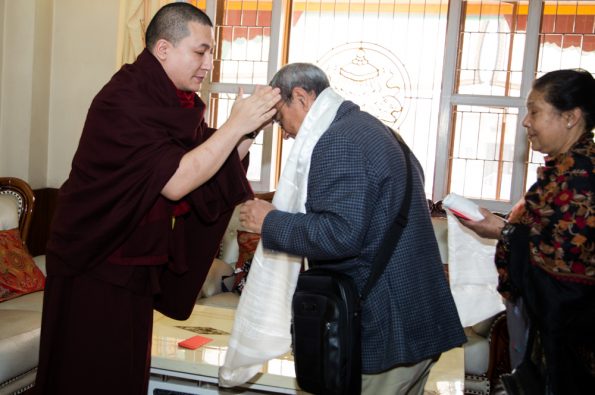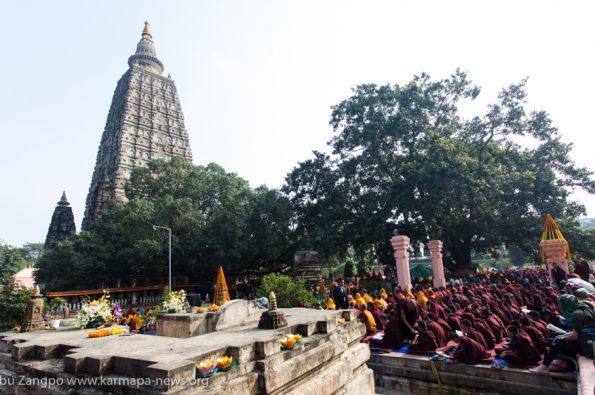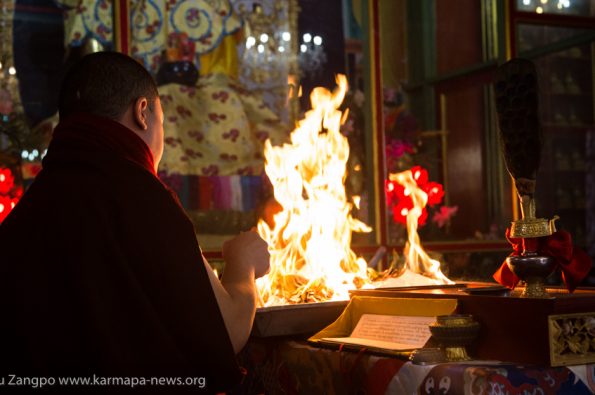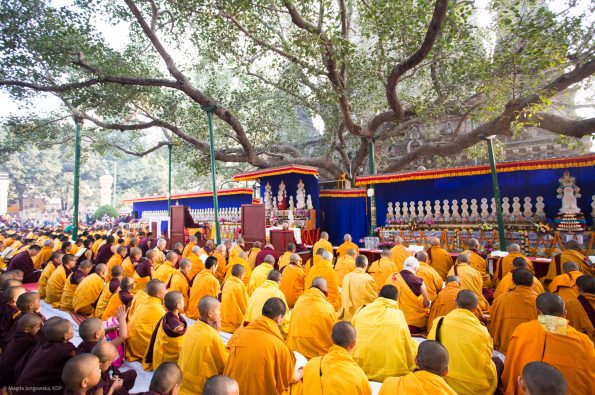Five Steps to a Wealthier Life. His Holiness Karmapa Trinley Thaye Dorje publishes article in Huffington Post.
Five Steps to a Wealthier Life.
We all want to lead healthy and prosperous lives. The news headlines in the UK and around the world, however, are firmly focused on the activities of banks and bankers and the weakness of our global economy. They paint a picture of wealth and prosperity defined by possessions and materialism alone. How do we lead wealthier lives, in ways that don’t just involve accumulating money?
From the Buddhist point of view the root causes for the current crisis are certain human faults – in particular greed – and therefore I believe that the solution to the challenges we are facing today equally lies within the mind, or the consciousness of each individual.
If we ask ourselves what we, as individuals, can do to make a difference, I trust that change can be achieved by taking small steps to accumulate inner wealth. Fortunately, since there is a great number of human beings if we add up the small steps that each individual takes, then within a very short time it will make a big difference – therefore, the strategy of taking small steps is both doable and effective.
First of all we have to be aware of the various types of means and resources that we have in our lives. Even ambition or desire can be used to develop inner wealth, if they are channelled in the proper way. For instance, if we have the desire and the ambition to generate contentment, then that is a good desire and a good ambition. So in this way we must make ourselves aware of various types of means at our disposal, and once we have done that, then an important method is that of comparing ourselves with others.
If we know how to properly apply the method of comparing ourselves with others we can extract a lot of inner wealth from that, too.
Often, we tend to compare ourselves with those who are wealthier, healthier, better-looking and generally better off, which leaves us feeling underprivileged and at a disadvantage – feelings which then become fertile ground for greed and desire.
If, on the other hand, we compare ourselves with those who are worse off, this will help us generate contentment and a sense of our own inner wealth and resources. Once again, in learning how to apply this method it is best to proceed step by step.
1. Consider animals. We might even start out by looking closely at the situation and suffering of animals and the limitations of their mental and verbal resources, and thus make ourselves aware of how much more freedom and scope for action we have as human beings.
2. Consider those less fortunate. The next step would be to compare ourselves with those who are worse off – those who are poor, deprived or sick, and once this step has been engrained, we can then go on to the next step, which is about learning how to compare ourselves with others who may not be sick or poor – maybe even healthier and wealthier than ourselves – but mentally unhappy or lacking in qualities such as compassion, courage or generosity.
3. Question crisis. This training may lead us to a point where we might re-examine the very idea that we are in a crisis. Maybe it’s just a judgment on our part, based on the one-sided importance we have attached to material wealth. From our new perspective we may see that those who are poor in terms of material wealth might actually be quite wealthy in other areas.
4. Question ourselves. We might be very critical of our own condition and think that we are very poor, but on closer examination this may not really be the case. Maybe we have been misjudging ourselves, but we will only realise that once we know how to compare.
5. Be grateful. Finally, this way of training can bring us to a stage where when we feel that there is some sort of crisis, we can actually be thankful about it: it makes us think, it makes us reassess where we stand, and it can help us realise that we are being too judgmental about everything, especially ourselves, and make us appreciate that it wasn’t as bad as we thought.
Therefore, I think that especially for us as “youth” it is important to constantly ask ourselves the question “How much is enough?”, both in relation to our material and non-material values. The world has come to a point where things are moving very fast, there is constant time pressure and we are often forced to grow up and mature very quickly and take on heavy responsibilities, and therefore it is all the more important to be very aware of our own state of mind as well as of our environment.
I will be going to England in a few days’ time, and I look forward to meeting with young people and youth organisations during my visit there. The purpose of this blog is to share some of my thoughts with you, but also to improve my own understanding by learning about young people’s ideas and concerns.
Therefore it would be of great help if you could enlighten me with your thoughts by taking the Wealth of Europe Facebook poll.
Click here to read an article on huffingtonpost.co.uk




